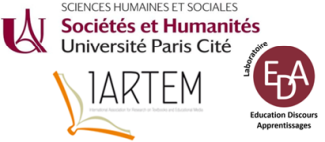Enhancing Effectiveness in Teaching Climate Change Through ChatGPT Integration in Albania pre-university education
Climate change education is a critical aspect of preparing the next generation to understand and address the challenges posed by environmental issues. This study proposes the integration of LLM (Large Language Model) such as ChatGPT prompts in pre-university teaching as a novel approach to enhance climate change education. The focus will be on geography teachers within the pre-university system, enabling them to effectively utilize ChatGPT prompts in the realm of physical geography, for climate knowledge and climate change issues, such as lesson planning, generating climate games, involving project based learning aspects, etc.The methodology involves a pre and post-test evaluation, providing guidelines for using ChatGPT prompts between the two phases. A group of 20 geography teachers are involved in the study. They teach geography subjects both in upper and lower secondary education. They teach about climate knowledge and climate change, especially in VII grade, X grades, and elected curricula “Climate Change”, as part of physical geography, where this knowledge is provided. Even though this knowledge includes the main concepts for climate change, teachers focus their teaching based on the learner-centered approach with a competency-based focus. This approach has been implemented in Albania since 2014. Teachers have diverse work experience as educators and are well-acquainted with the geography curriculum, and the programs, required by the Ministry of Education and Science. Related to work experience they are grouped as: unclassified (30%), qualified (5%), specialist (40%), and higly skilled (25%). They feel comfortable with the geography textbooks and climate change curricula. They have various specializations in the field of teaching and learning processes.
During the pre-test phase, the knowledge and utilization of ChatGPT as an innovative tool for geography teaching, especially for climate change, are assessed. A set of questions are given to teachers. Then in the next step, LLM-ChatGPT prompts are introduced as a supplementary tool for geography teachers, and some guidelines on ChatGPT usage are provided. This information is shared online to the participants Emphasis was given to the method of writing prompts related to climate change. Furthermore, teachers are orientated towards integrating ChatGPT to generate lesson plans or parts of them. They are tasked to create prompts for creative, interactive, and engaging climate change games, with suggestions to incorporate elements of competition and collaboration to foster a positive learning environment, etc.They are asked to create instructions for self-assessment of students themselves, outlining how they should reflect on their climate-related knowledge, issues of climate change, and climate actions.
A post-test evaluation was conducted to understand the effectiveness of ChatGPT as an innovative and informative tool for geography teachers regarding knowledge about climate change and action. For this reason, a set of questions from the first phase was repeated in the second phase. The level of effectiveness in using ChatGPT, determined by the study, depending on work experiences, teachers' guiding, and the potential of digital and technical use or content-related aspects, constitutes important findings for expanding its effective use as an assisting tool in teachers' work. Data were collected using a structured questionnaire, mostly with a 5-level Likert scale. For statistical data analysis, it is utilized the SPSS software program. The Cronbach's Alpha result of 0.864 indicates a good level of reliability for the questionnaire variables. Study found that there were no relation between work experience (in year) as a teacher and the time spent on self-training in the use of technology. The study showed that 40% of teachers belonging to the "unclassified" category rated that they would use "always" ChatGPT for climate change and climate action topics, while 66.7% of teachers in the "specialist" category assessed that they would use this tool "often" in relation to this topic.Other statistical analyses include cross-tabulation and paired samples t-test. Teachers states that there are some problems in: a) structuring the questions. It is need to be as clear and specific as possible in what they are asking, b) suggest limiting of its use by students regarding task preparation, as it may influence students' creative work and critical thinking. c) problems with the reliability of the generated information, d) the generated information in the Albanian language was sometimes unclear, etc.
Despite some challenges highlighted by teachers, such as structuring questions and concerns about reliability and clarity of generated information, the second phase revealed that ChatGPT was perceived as "always" and "often" helpful in competence-based teaching approach and teaching climate knowledge content and action. These findings, along with others, underscore the potential of integrating technological innovations, such as ChatGPT, into educational practices as a supportive tool from teachers' perspectives.

 PDF version
PDF version
